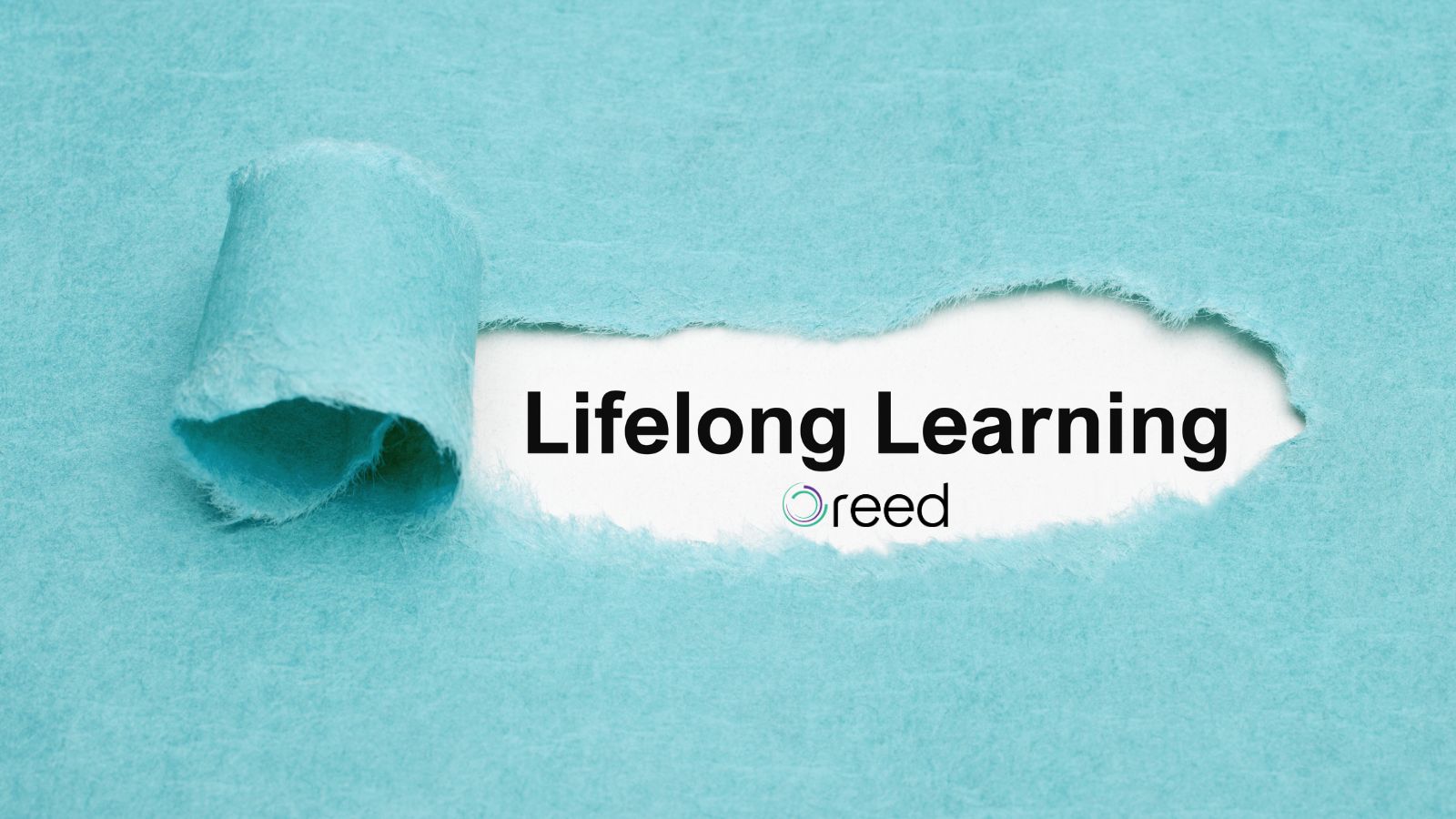Welcome to the beginner's guide on exploring social learning theories in the workplace.
In this guide, we will introduce you to the fundamental principles of social learning theories and their application in professional settings.
Social learning theories help us understand how individuals learn from others through observation and interaction.
We will explore concepts such as observational learning, modeling, and the role of social interaction in shaping behavior.
Through practical examples and case studies, you will gain insights into fostering a culture of continuous learning and improvement in your workplace.
By the end of this guide, you will have a solid foundation in social learning theories and practical strategies to promote effective learning and knowledge sharing.
Let's embark on this exciting journey of exploring social learning theories in the workplace!
What Is Social Learning Theory?

Social learning theories encompass a range of psychological perspectives that emphasize the influence of social interaction and observation on learning and behavior.
These theories propose that individuals learn by observing others and imitating their actions, as well as through direct social interactions.
Social learning theories highlight the role of cognitive processes, such as attention, memory, and motivation, in the learning process.
They also consider the impact of reinforcement and consequences on behavior acquisition.
These theories emphasize the importance of social context, cultural factors, and environmental influences in shaping individuals' learning experiences.
Overall, social learning theories provide a framework for understanding how individuals acquire new behaviors, knowledge, and skills through social observation and interaction.
Importance Of Social Learning Theory
According to McKinsey, utilizing a social learning platform to connect with others through social technology can yield substantial productivity gains, potentially reaching as high as 35%.
The importance of social learning theory cannot be overstated in understanding human behavior, learning processes, and social development.
1. Understanding Behavior Acquisition
Social learning theory provides insights into how individuals acquire new behaviors through observation and modeling.
It helps explain how people learn skills, attitudes, and values by observing others' actions and their consequences.
This understanding is crucial in areas such as education, psychology, and personal development.
2. Shaping Socialization And Culture
Social learning theory highlights the role of social interaction in shaping individuals' beliefs, attitudes, and behaviors.
It helps explain how cultural norms, traditions, and socialization processes are transmitted from one generation to another.
Understanding social learning processes is essential for understanding societal dynamics and promoting positive cultural development.
3. Fostering Effective Learning Environments
Applying social learning theory in educational settings can enhance instructional strategies.
By incorporating modeling, collaborative learning, and peer interactions, educators can create engaging and effective learning environments.
Social learning theory also emphasizes the importance of providing feedback and reinforcement to support learning outcomes. It fosters a culture of listening to the employees to improve associated problems.
4. Behavior Modification And Intervention
Social learning theory provides a framework for behavior modification and interventions.
By identifying influential models and environmental factors, interventions can be designed to promote desirable behaviors and discourage harmful ones.
This has applications in areas such as therapy, counseling, and rehabilitation programs.
5. Organizational Learning And Development
According to a survey, the majority of Learning and Development (L&D) professionals, comprising 83%, express that their executives endorse employee learning as a valuable facilitator for business success.
Conversely, a considerably smaller percentage, specifically 38% of managers, believe that their current learning initiatives adequately cater to the specific needs of the learners.
Social learning theory has implications for the workplace.
By promoting a culture of continuous learning, knowledge sharing, and mentoring, organizations can foster professional development and improve performance.
Understanding social learning processes helps organizations design effective training programs and facilitate knowledge transfer among employees.
In conclusion, the importance of social learning theory lies in its ability to shed light on behavior acquisition, shape socialization and culture, foster effective learning environments, guide behavior modification and interventions, enhance organizational learning, and facilitate personal and professional growth.
By acknowledging and applying the principles of social learning theory, we can unlock its potential to drive positive change and facilitate meaningful learning experiences.
Important Social Learning Theories In The Workplace
1. Observational Learning
Observational learning theory, also known as vicarious learning or social modeling, suggests that individuals learn by observing others' behaviors and their consequences.
In the workplace, this theory highlights the significance of providing positive role models and opportunities for employees to observe and learn from their peers and supervisors.
2. Social Cognitive Theory
Social cognitive theory focuses on the cognitive processes involved in learning, such as attention, memory, and motivation.
It emphasizes that individuals learn by actively constructing knowledge through social interaction.
In the workplace, this theory underscores the importance of providing feedback, setting achievable goals, and fostering a supportive and collaborative work environment.
3. Communities Of Practice
Communities of practice theory suggest that learning occurs through participation in social communities where individuals share knowledge, experiences, and practices related to a specific domain.
In the workplace, this theory encourages the creation of communities or groups where employees can engage in collaborative problem-solving, knowledge sharing, and skill development.
4. Experiential Learning
Experiential learning theory posits that individuals learn best through direct experience, reflection, and active experimentation.
It highlights the importance of hands-on learning opportunities, real-world problem-solving, and reflection on workplace experiences to enhance learning and skill development.
5. Social Exchange Theory
Social exchange theory examines the dynamics of social interactions and emphasizes the exchange of resources, benefits, and costs between individuals.
In the workplace, this theory highlights the importance of fostering positive social exchanges, such as mentoring relationships and knowledge sharing, to facilitate learning, collaboration, and professional growth.
6. Social Constructivism
Social constructivism emphasizes the role of social interaction and collaboration in knowledge construction.
It suggests that individuals actively construct meaning and understanding through shared experiences and dialogue.
In the workplace, this theory encourages collaborative learning activities, group discussions, and project-based tasks to promote knowledge creation and innovation.
Understanding and applying these social learning theories in the workplace can enhance employee learning, promote knowledge sharing, foster collaboration, and improve overall organizational performance.
By creating a supportive and interactive learning environment, organizations can leverage the power of social learning theories to facilitate continuous learning and professional development among their workforce.
Revolutionize Workforce Development With Oreed: Unleashing the Potential of Personalized Training
1. Personalized Training For Optimal Results
In a survey, an overwhelming 94% of employees expressed the belief that active participation in their learning and development would significantly increase their tenure with the company.
Harness the power of Oreed's cutting-edge features to create customized training and courses that address the specific strengths and weaknesses of your team.
By tailoring personalized learning experiences and investing in different training styles you empower individuals to unlock their full potential and achieve exceptional results.
2. Quantifiable Impact With Advanced Analytics
Did you know that among the employees who departed from their previous employers, 34% were enticed by the prospect of enhanced opportunities for career growth and advancement?
Measure and evaluate the effectiveness of your training initiatives using Oreed's comprehensive analytics and reporting capabilities.
Gain valuable insights into the impact of training on employee performance and ensure that your investments deliver maximum value.
3. Drive Extraordinary Outcomes
Maximize your organization's productivity, efficiency, profitability, and customer engagement with Oreed's robust learning tools.
Experience remarkable revenue growth and heightened customer engagement, as Oreed has the potential to increase performance by up to 10 times.
4. Nurturing Mastery And Discipline
Cultivate the values of mastery and discipline within your organization through Oreed's comprehensive learning platform.
Empower individuals to develop expertise, sharpen their skills, and embark on guided learning journeys tailored to their needs.
Oreed promotes a structured and organized approach to learning, fostering consistency and sustained growth.
5. Embodying Your 2030 Vision
Align your workforce with your organization's long-term objectives by leveraging Oreed's resources.
Foster a culture of continuous learning and development, allowing employees to embody the values of mastery and discipline.
Through Oreed, contribute to the realization of your 2030 vision and unlock the full potential of your workforce.
So what are you waiting for? Book a demo with Oreed today and find out more about our features.
Promote lifelong learning through Oreed by experiencing the most powerful all-in-one training and development intelligent platform that streamlines all your organization's learning, training, and development activities in one place.
Final Thoughts
The Beginner's Guide to Exploring Social Learning Theories in the Workplace equips readers with the essential knowledge to foster a culture of continuous learning.
By understanding concepts like observational learning and modeling, organizations can enhance employee training, promote knowledge sharing, and drive innovation.
This guide emphasizes personalized learning experiences, measuring training impact, and cultivating a culture of continuous learning.
Implementing social learning theories empowers organizations to unlock their workforce's potential, adapt to change, and thrive in a dynamic business environment.
FAQs
1. What are some social learning theory examples in action?
Social learning theory examples can be observed in various real-life scenarios. For instance, in the workplace, employees often learn new skills by observing and imitating their colleagues' behaviors.
This exemplifies social learning theory as individuals acquire knowledge through social interaction.
Another social learning theory example is children learning language by imitating their parents or peers, showcasing how observation and modeling play a pivotal role in language development, as proposed by social learning theory.
2. What are some benefits of incorporating social learning theory in education?
Integrating social learning theory in education offers several advantages.
It fosters active engagement among students, enhances their interpersonal skills, and promotes a deeper understanding of the subject matter through social interaction.
By providing opportunities for collaborative problem-solving and peer learning, social learning theory in education supports the development of teamwork, communication, and leadership skills.
Additionally, it cultivates a positive and supportive learning environment that encourages students to learn from one another, fostering a sense of community and shared learning experiences.





